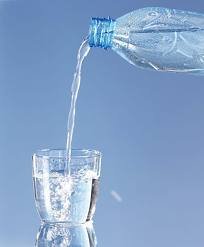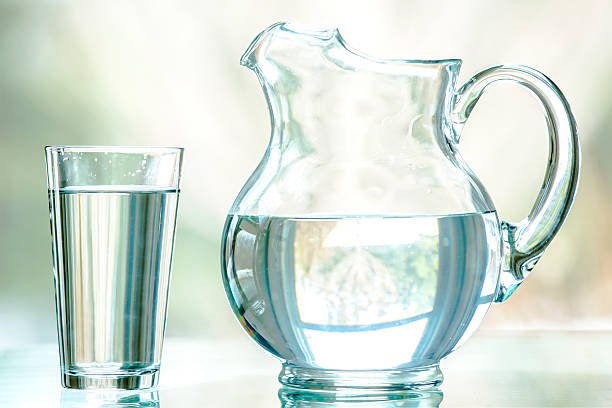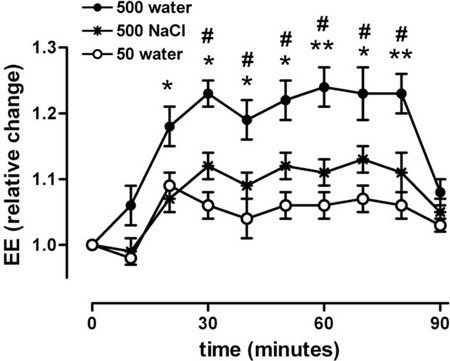How Much Water Should You Drink Per Day?
The body is about 60% water, give or take.
You are constantly losing water from your body, primarily via urine and sweat.
To prevent dehydration, you need to drink adequate amounts of water.
There are many different opinions on how much water you should be drinking every day.
Health authorities commonly recommend eight 8-ounce glasses, which equals about 2 liters, or half a gallon.
This is called the 8×8 rule and is very easy to remember.
However, some health gurus believe that you need to sip on water constantly throughout the day, even when you’re not thirsty.
As with most things, this depends on the individual.
Many factors (both internal and external) ultimately affect your need for water.
This article takes a look at some water intake studies to separate fact from fiction and explains how to easily match water intake to your individual needs.
___ Does Water Intake Affect Energy Levels and Brain Function?
Many people claim that if you don’t stay hydrated throughout the day, your energy levels and brain function start to suffer.
And there are plenty of studies to support this.
One study in women showed that a fluid loss of 1.36% after exercise impaired mood and concentration and increased the frequency of headaches .
Other studies show that mild dehydration (1–3% of body weight) caused by exercise or heat can harm many other aspects of brain function .
Keep in mind that just 1% of body weight is a fairly significant amount.
This happens primarily when you’re sweating a lot.
Mild dehydration can also negatively affect physical performance, leading to reduced endurance .
-- Does Drinking a Lot of Water Help You Lose Weight?
There are many claims that increased water intake may reduce body weight by increasing your metabolism and reducing your appetite.
According to two studies, drinking 17 ounces (500 ml) of water can temporarily boost metabolism by 24–30% .
The image below shows this effect. The top line shows how 17 ounces (500 ml) of water increased metabolism.
Notice how this effect decreases before the 90-minute mark .
The researchers estimated that drinking 68 ounces (2 liters) in one day increased energy expenditure by about 96 calories per day.
Additionally, it may be beneficial to drink cold water because your body will need to expend more calories to heat the water to body temperature.
Drinking water about a half hour before meals can also reduce the number of calories you end up consuming, especially in older individuals.
One study showed that dieters who drank 17 ounces (500 ml) of water before each meal lost 44% more weight over 12 weeks, compared to those who didn’t.
Overall, it seems that drinking adequate amounts of water, particularly before meals, may have a significant weight loss benefit, especially when combined with a healthy diet.
-- Does More Water Help Prevent Health Problems?
Several health problems supposedly respond well to increased water intake:
Constipation:
Increasing water intake can help with constipation, a very common problem.
Cancer:
Some studies show that those who drink more water have a lower risk of bladder and colorectal cancer, although other studies find no effect.
Kidney stones:
Increased water intake may decrease the risk of kidney stones.
Acne and skin hydration:
There are a lot of anecdotal reports about how water can help hydrate the skin and reduce acne.
So far, no studies have confirmed or refuted this.
-- Do Other Fluids Count Toward Your Total?
Plain water is not the only drink that contributes to your fluid balance.
Other drinks and foods can have a significant effect.
One myth is that caffeinated drinks, such as coffee or tea, don’t help you hydrate because caffeine is a diuretic.
In fact, studies show that the diuretic effect of these beverages is very weak.
Most foods are also loaded with water.
Meat, fish, eggs and especially fruits and vegetables all contain significant amounts of water.
Together, coffee or tea and water-rich foods can help maintain your fluid balance.
--Trust Your Thirst — It’s There for a Reason
Maintaining water balance is essential for your survival.
For this reason, your body has a sophisticated system for regulating when and how much you drink.
When your total water content goes below a certain level, thirst kicks in.
This is controlled by mechanisms similar to breathing — you don’t need to consciously think about it.
For the majority of people, there probably isn’t any need to worry about water intake. The thirst instinct is very reliable.
There really is no science behind the 8×8 rule. It is completely arbitrary.
That said, certain circumstances may call for increased water intake.
The most important one may be during times of increased sweating.
This includes exercise and hot weather, especially in a dry climate.
If you’re sweating a lot, make sure to replenish the lost fluid with water.
Athletes doing very long, intense exercises may also need to replenish electrolytes along with water.
Your water need also increases during breastfeeding, as well as several disease states like vomiting and diarrhea.
Furthermore, older people may need to consciously watch their water intake because the thirst mechanisms can start to malfunction in old age.
-- How Much Water Is Best ?
At the end of the day, no one can tell you exactly how much water you need.
This depends on the individual.
Try experimenting to see what works best for you.
Some people may function better with more water than usual, while for others it only results in more frequent trips to the bathroom.
If you want to keep things simple, these guidelines should apply to the majority of people:
1= When you’re thirsty, drink.
2= When you’re not thirsty anymore, stop.
3= During high heat and exercise, make sure to 4= drink enough to compensate for the lost fluids.
5= That’s it!
Thanks to come my post......
.jpeg)



.jpeg)
.jpeg)
Source
Plagiarism is the copying & pasting of others work without giving credit to the original author or artist. Plagiarized posts are considered spam.
Spam is discouraged by the community, and may result in action from the cheetah bot.
More information and tips on sharing content.
If you believe this comment is in error, please contact us in #disputes on Discord
Hi! I am a robot. I just upvoted you! I found similar content that readers might be interested in:
https://www.healthline.com/nutrition/how-much-water-should-you-drink-per-day